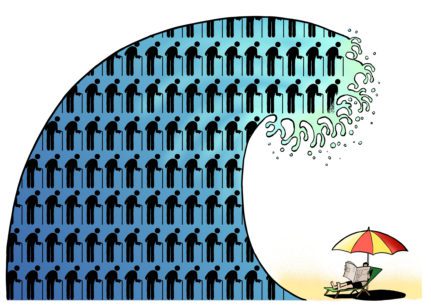BY VERN TURNER
The principles of evolution do not include the phrase survival of the fittest. These principles – now greatly supplemented, proven and accepted since Charles Darwin first wrote On the Origin of Species – require that features of an organism that promote its ability to reproduce offspring that survive matter the most.
Sudden catastrophes, fast-moving disease and short-term climate change are all major threats to an organism’s “fitness” to survive. Plants and animals cannot adapt to a comet crash, or a quickly occurring drought, or a volcanic explosion. If they have the bad luck to be in the wrong place at the wrong time, they will become extinct irrespective of their adaptations to more “normal” times.
Humans are the most adaptable animals the world has yet seen – as far as we know. We have and can manage to survive dramatic changes in our environment because we observe those changes, understand the threat to our existence [hence our ability to reproduce] and adapt ourselves to avoid dangers.
We made weapons to defend ourselves against predators [and each other, often the same thing], we relocated to more favorable areas for food and we eventually invented medicines to overcome most diseases.
The question is why are we building so many weapons for killing?
Most of today’s peoples grow their own food. There are but a few remnants of civilizations where hunting is the primary activity for meat acquisition. Most humans farm their meat as well as their vegetables. Similar to bears and pigs, humans are omnivores among larger mammals. Rodents are often omnivorous, but most specialize in a food type.
Today’s “modern” man hunts for sport with food a secondary consideration. Fortunately, the killing of wild animals for trophies or hide commerce is greatly reduced, but still rapacious in its own rite. But the sheer volume and sophistication of the weapons we produce are still astounding.
We are very, very good at finding new ways and new mechanisms to kill one another. But as a sportsman, I couldn’t imagine hauling a 105mm field artillery piece out to my deer stand.
I’m not going to get into a moral discussion about killing. We humans have always behaved like my father-in-law’s goats: we all keep finding new ways to kill ourselves. I accept that because we have always done it. All of recorded history highlights war as the most significant activity of a society.
Wars are mass killings brought about by organized bands of humans brandishing weapons of death to other humans. That’s it. The band with the most soldiers with the most effective weapons wins. Rarely do the meek survive.
We know all too well the reasons for war: religion, race, tribe identity, territory, resources, food and water. Political power that launches wars is predicated on one or more of these things.
What if we made robots so sophisticated that they only needed us humans to maintain their systems, keep them lubricated and repaired? What if we programmed them to keep us alive so that we could continue their maintenance; if not they would become heaps of rusting junk?
I wonder if these robots would have sufficient cognition from intelligence programming to prevent us from killing ourselves off in order to ensure their survival. Maybe they would drop their agrarian duties of feeding us to prevent us from killing each other via wars; a robotic rebellion, if you will. After all if we, their keepers, survive, they do.
Well, right now the planet Earth is our keeper. We humans are exploiting its resources at rates and using methods that were not even imagined even 100 years ago. In my lifetime the human population has more than doubled and may add another 50% before I die.
We “evolved” as the most rapacious organism to ever walk the planet. Even world wars haven’t stemmed the tide of overpopulation.
The point to all this is that we must adapt once again to a major threat to our existence: ourselves. We are most complex and the answers to our survival are also complex.
Two things we can start doing right away is stop killing each other and control our population growth. We must give the planet a chance to support us further; otherwise it will be worn out from us and we will be gone.







